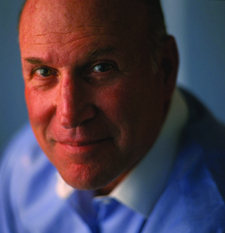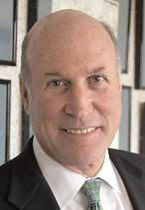 Front group king Rick Berman, who has worked in the shadows for years, is starting to draw closer scrutiny from the IRS, the media and the public for the unique, self-dealing business model he developed to champion for big business. Berman, a former lobbyist, set up six nonprofit organizations with innocuous names like the Center for Consumer Freedom, the American Beverage Institute and the Employment Policies Institute. Despite their nonprofit designation, together these groups provide as much as 70 percent of the revenues of his for-profit enterprise, Berman and Company. The Center for Consumer Freedom, for example, took in $1.5 million in revenues in 2008, of which 93 percent went to Berman and his firm. The American Beverage Institute took in $1.7 million, of which 82 percent went to Berman and his firm. None of his non-profit groups have independent offices or staff, and all of them pay Berman's for-profit business for services like accounting, copying, writing, operating Web sites, placing opinion-editorials, and bookkeeping, which is managed by Berman's wife, Dixie Lynn Berman. Rick Berman sits on the boards of his organizations, holds a total of 24 positions within them, and he serves as Executive Director for most of them. Sounds fishy, right?
Front group king Rick Berman, who has worked in the shadows for years, is starting to draw closer scrutiny from the IRS, the media and the public for the unique, self-dealing business model he developed to champion for big business. Berman, a former lobbyist, set up six nonprofit organizations with innocuous names like the Center for Consumer Freedom, the American Beverage Institute and the Employment Policies Institute. Despite their nonprofit designation, together these groups provide as much as 70 percent of the revenues of his for-profit enterprise, Berman and Company. The Center for Consumer Freedom, for example, took in $1.5 million in revenues in 2008, of which 93 percent went to Berman and his firm. The American Beverage Institute took in $1.7 million, of which 82 percent went to Berman and his firm. None of his non-profit groups have independent offices or staff, and all of them pay Berman's for-profit business for services like accounting, copying, writing, operating Web sites, placing opinion-editorials, and bookkeeping, which is managed by Berman's wife, Dixie Lynn Berman. Rick Berman sits on the boards of his organizations, holds a total of 24 positions within them, and he serves as Executive Director for most of them. Sounds fishy, right?

 BP
BP The celebrity chef
The celebrity chef  Obama is right -- but only to a point. An important right was missing from his list of consumer protections because, once again, insurers had made sure it would not be part of any bill that reached his desk.
Obama is right -- but only to a point. An important right was missing from his list of consumer protections because, once again, insurers had made sure it would not be part of any bill that reached his desk. The
The 
 A new
A new